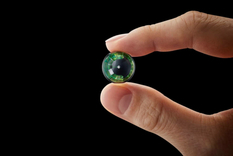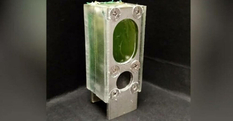We use essential cookies for the proper functioning of the website and additional ones to make interaction with the site as convenient as possible. It helps us personalize your user experience as well as obtain analytical information to improve the service.
If you agree to accept all cookies, click "Accept all"; if not, click "Only essential". To learn more, view the Cookie Policy.

"Iron lung": scientists have created an alternative to the ventilator
Scientists have created a modern "iron lung" in case of a shortage of ventilators. The device, first created in the 17th century, was actively used during the polio epidemic in the 20th century, and its modern design will help doctors cope with the COVID-19 pandemic.
In its classic form, the iron lung is an airtight cylindrical capsule in which most of the human body is placed. The patient’s head is outside.
Inside the chamber, the pressure alternately decreases or rises. This allows the lungs to fill with air, and exhale the patient without using the muscles of the respiratory system.
The Iron Lung gained widespread popularity in the 1950s during the US polio epidemic. In this disease, due to spinal cord injuries, the patients were paralyzed, and the device supported the lungs until the paralysis passed or the patient died.
Now, an international group of scientists together with the company Marshall Aerospace & Defense Group has finalized the device. It was called Exovent - its prototype has already passed preliminary tests and will soon be tested in two British intensive care units, where patients with COVID-19 are lying.
Researchers note that in its modern form, the “iron lung” does not require complicated adjustment and the constant presence of qualified medical staff, as is the case with mechanical ventilation devices. The device is installed only on the patient’s chest - this allows him to eat, drink, talk and move. Also, the device improves heart function by 25% compared with conventional ventilation machines.
In its classic form, the iron lung is an airtight cylindrical capsule in which most of the human body is placed. The patient’s head is outside.
Inside the chamber, the pressure alternately decreases or rises. This allows the lungs to fill with air, and exhale the patient without using the muscles of the respiratory system.
The Iron Lung gained widespread popularity in the 1950s during the US polio epidemic. In this disease, due to spinal cord injuries, the patients were paralyzed, and the device supported the lungs until the paralysis passed or the patient died.
Now, an international group of scientists together with the company Marshall Aerospace & Defense Group has finalized the device. It was called Exovent - its prototype has already passed preliminary tests and will soon be tested in two British intensive care units, where patients with COVID-19 are lying.
Researchers note that in its modern form, the “iron lung” does not require complicated adjustment and the constant presence of qualified medical staff, as is the case with mechanical ventilation devices. The device is installed only on the patient’s chest - this allows him to eat, drink, talk and move. Also, the device improves heart function by 25% compared with conventional ventilation machines.


